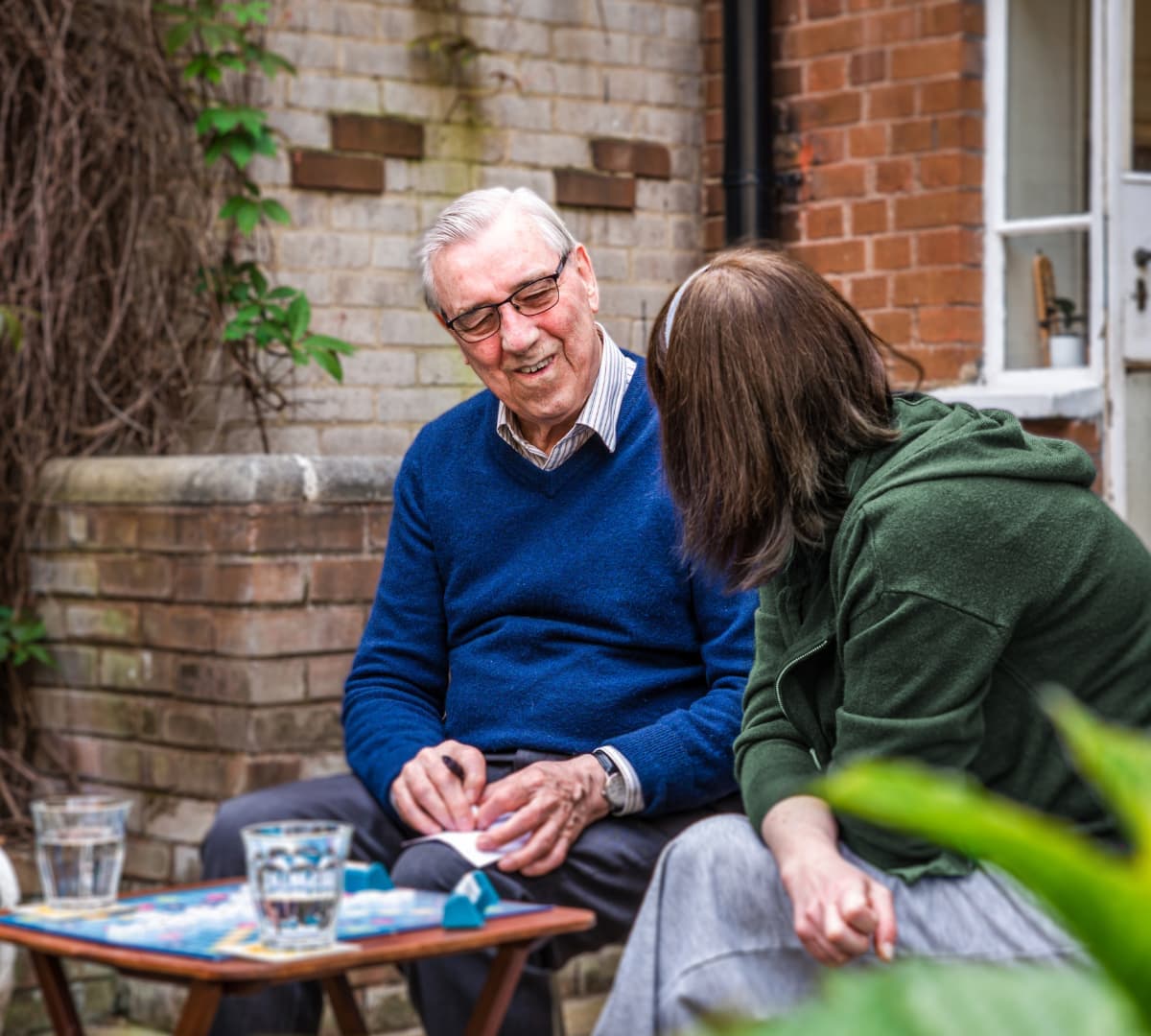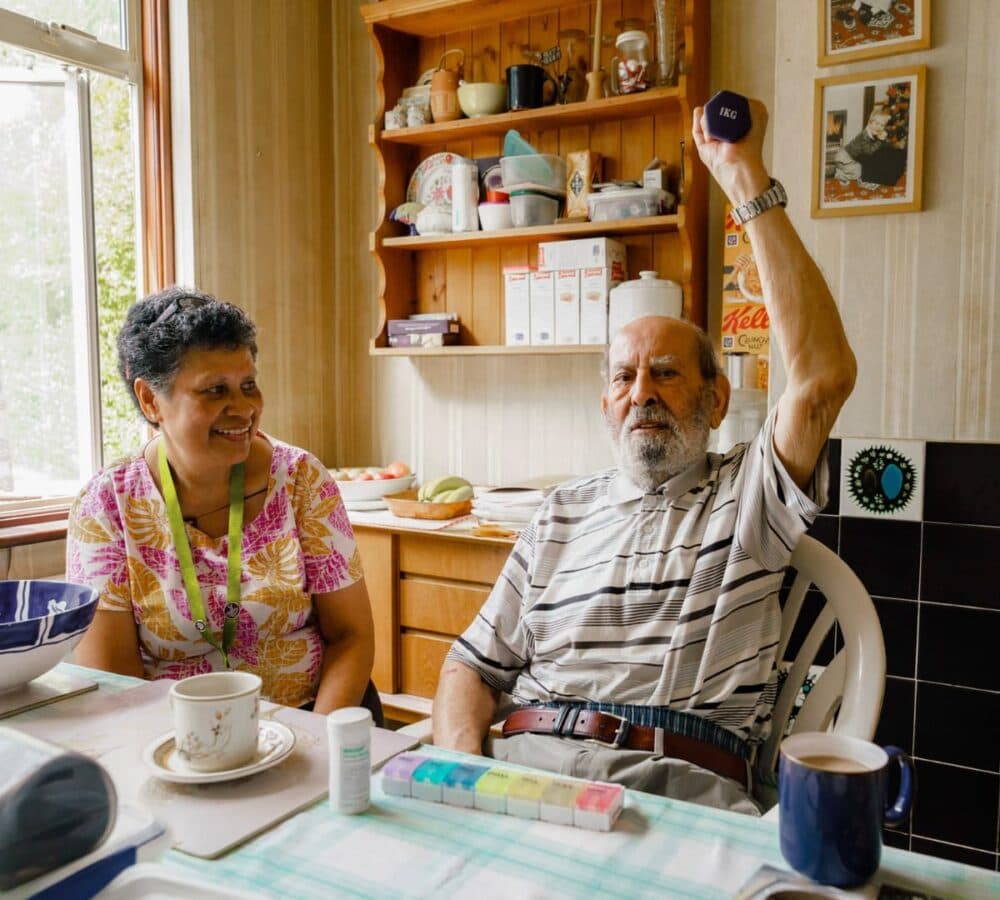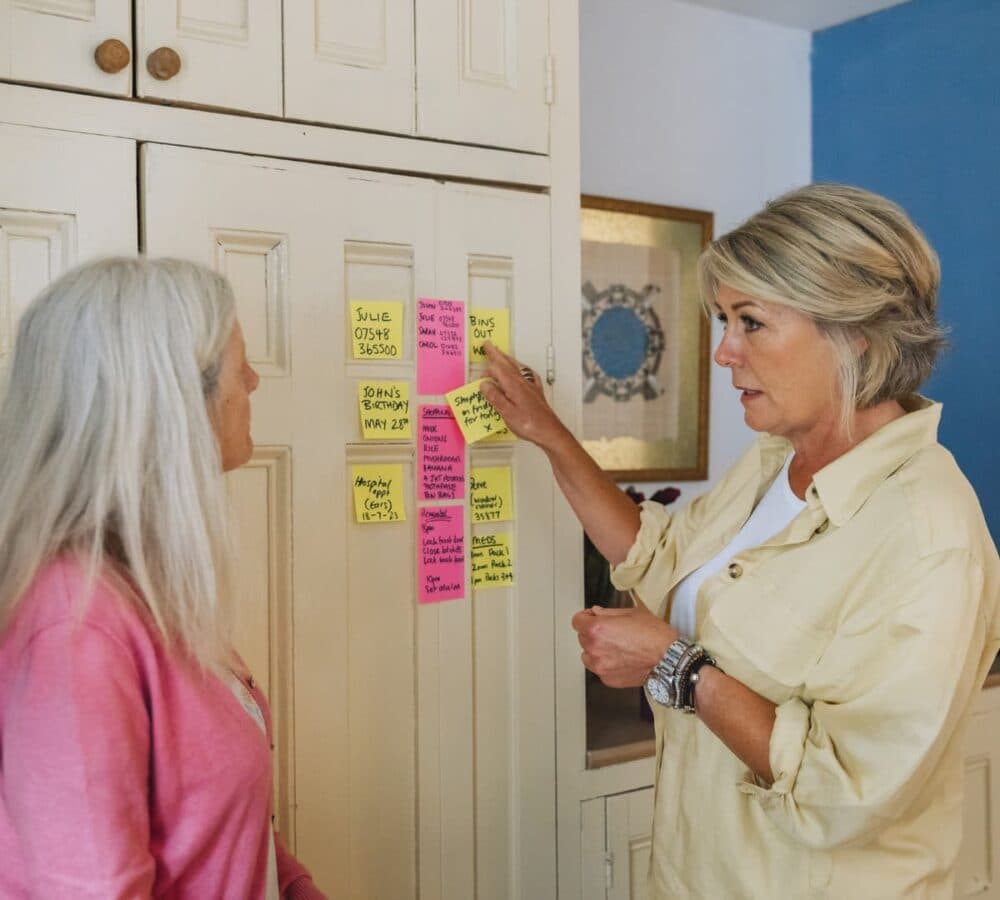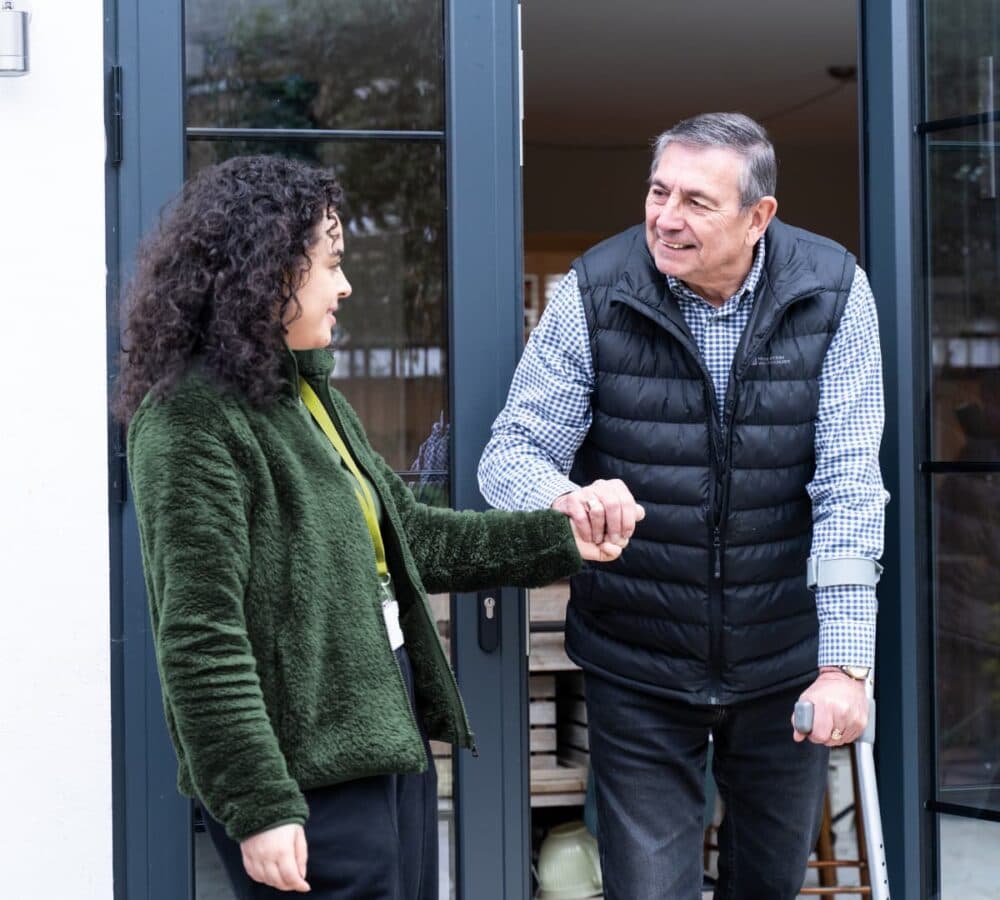Better Alzheimer’s Care at Home: Start With a 3-2-1 Plan

Each September, World Alzheimer’s Month invites us to learn, talk, and act, highlighting simple changes that make daily life easier.
Across Wolverhampton, Wombourne and Kingswinford, familiar routines and places help someone living with Alzheimer’s feel calmer and more secure, whether that is a gentle loop through West Park, a quiet bench at Himley Hall, or the sound of the kettle in a well-loved kitchen.

Start with a 3–2–1 plan
3 cornerstones
– Routine: regular times for meals, medication and rest.
– Space: clear walkways, good lighting, a favourite chair in a predictable spot.
– Cues: large-face clock, labelled cupboards, photos within easy view.
2 everyday habits
– Listen, then pause: match their pace and allow extra time.
– Offer choices: “tea or coffee?”, “cardigan or jumper?” Choose, don’t quiz.
1 daily mood-booster
– Build in one small joy: a favourite song, five minutes with the garden roses, or a look at photos from the past.
Do • Try • Skip
Do: speak slowly, use short sentences, keep eye contact.
Try: gentle redirection. Acknowledge feelings first, facts second.
Skip: correcting or arguing. It raises anxiety without helping understanding.
Small wins for a safer home
- Improve lighting in hallways and bathrooms for safer movement.
- Put a simple day plan on the fridge with clear timings.
- Keep essentials together in one place by the favourite chair.
- Reduce visual clutter on worktops and add non-slip mats.
- Use contrasting crockery to help with depth perception.
- Create a calm corner with a blanket, headphones and a “comfort playlist.”

How Home Instead helps locally
Our Care Professionals provide person-centred dementia support that fits each individual’s preferences and pace. Visits are unhurried and focused on connection as well as care. Families value consistent faces, clear updates and flexible options, from a few visits a week to live-in care for round-the-clock reassurance.
All Care Professionals complete City & Guilds-assured dementia training and ongoing learning so they can spot small changes, adapt routines and prioritise dignity and safety.
Let’s talk about Alzheimer’s. If you are considering Alzheimer’s care at home in Wolverhampton, Wombourne or Kingswinford, we can walk you through options and what the first weeks look like.
Call us for a friendly chat on 01902 745815 or to enquire online.

FAQs
What are the early signs of Alzheimer’s?
Common early signs include memory lapses that disrupt daily life, difficulty planning or solving problems, trouble completing familiar tasks, confusion about time or place, changes in visual perception, word-finding problems, misplacing items, reduced judgment, withdrawal from social activities, and mood or personality changes. If several appear together, speak to your GP for assessment and advice.
How can we make communication easier at home?
Reduce background noise, face your loved one, use short sentences and allow extra time for replies. Offer choices rather than open-ended questions and use objects, gestures or photos to support understanding.
What support can Home Instead provide in Wolverhampton, Wombourne and Kingswinford?
Flexible home care tailored to the person, including companionship, personal care, medication prompts, meal preparation, respite for family carers and overnight care. All delivered by dementia-trained Care Professionals who prioritise consistency, safety and respect.